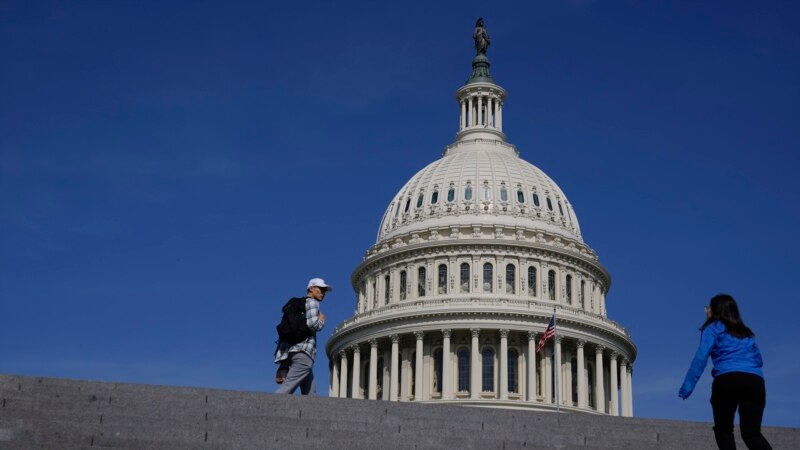
Americans on the right and left have much more in common than you might think, including their strong distrust of each other.
A poll released Wednesday found that when asked about core values such as fairness, compassion and personal responsibility, about nine in 10 Democrats and Republicans agreed they were very or extremely important. However, only about a third of each group said they believed the same was true for the other party.
The results of the poll, conducted by NORC at the University of Chicago and the nonprofit group Starts With Us, reveal a stark truth at the source of the polarization that has a powerful grip on American politics: while most Americans agree on the fundamental principles underlying American democracy, they no longer recognize that the other side holds those values as well.
“This is a hidden opportunity for Americans to reestablish a sense of shared values,” said Tom Fishman, executive director of Starts With Us, a nonpartisan organization that works to bridge political polarization. Americans of both parties need to understand that they still share common values, he said, and acknowledge their misconceptions about the other party.
Americans have a long tradition of contentious politics, dating back to before the Boston Tea Party. But with the notable exception of the Civil War, a sense of unity has kept those divisive forces at bay. Experts who study partisanship and trust say that while some polarization is natural, it can become a major problem when political parties exploit it or when one party no longer sees the other as a legitimate opposition but as an enemy.
A number of factors are cited as possible causes of increased divisiveness, including the decline and fragmentation of legitimate news sources, politicians stoking mistrust, and social media platforms spreading misinformation and, all too often, , classify users in echo chambers where they rarely find an answer. opposite view.
This loss of unity is tied to growing mistrust in the media, government, science and public health, while political anger has sometimes turned into hate speech or violence like the one seen on January 6, 2021, when supporters of then-President Donald Trump attacked the US Capitol in an attempt to overturn the Republicans’ 2020 election loss to Democrat Joe Biden.
“When you worry is when polarization turns into dehumanization, a feeling that the other is somehow less than human, or evil, or incapable of sharing your decent human values,” said Nealin Parker, executive director of Common Ground USA. , a group that works to resolve conflicts by building trust among Americans. “That should worry anyone, because those are the psychological steps needed to hurt each other.”
In the survey, respondents were asked to rate the importance of six principles: personal responsibility, fair compliance with the law, representative government, government accountability, compassion and respect across differences, and learning from the past. In each case, around 90% of Democrats and Republicans rated these values as very or extremely important.
However, when asked if members of the opposing party shared those values, around two-thirds of those surveyed said they did not.
For example, while 91% of Republicans said they believe citizens should learn from the past to improve the country, only 29% of Democrats said they believed that was true for Republican voters. And while only 31% of Republicans say Democrats value government accountability, 90% of Democratic respondents said they consider it very or extremely important.
The findings reflect a phenomenon known as “affective polarization,” in which disagreements are based on animosity and a lack of trust rather than an actual debate about values or policies. Julia Minson, a professor who studies conflict and collaboration at Harvard University’s Harvard Kennedy School, said recognizing common values is a good start to bridging America’s divisions.
Too often, Minson said, “we attribute negative things to people we don’t agree with. We see them as an adversary who doesn’t want to be a partner. He is very much about emotions and trust and is largely divorced from real differences.”
Connect with the Voice of America! Subscribe to our channel Youtube and activate notifications, or follow us on social networks: Facebook, Twitter and Instagram.


![[Img #74664]](https://thelatestnews.world/wp-content/uploads/2024/12/James-Watson-The-controversial-genius-behind-the-double-helix-150x150.jpg)









